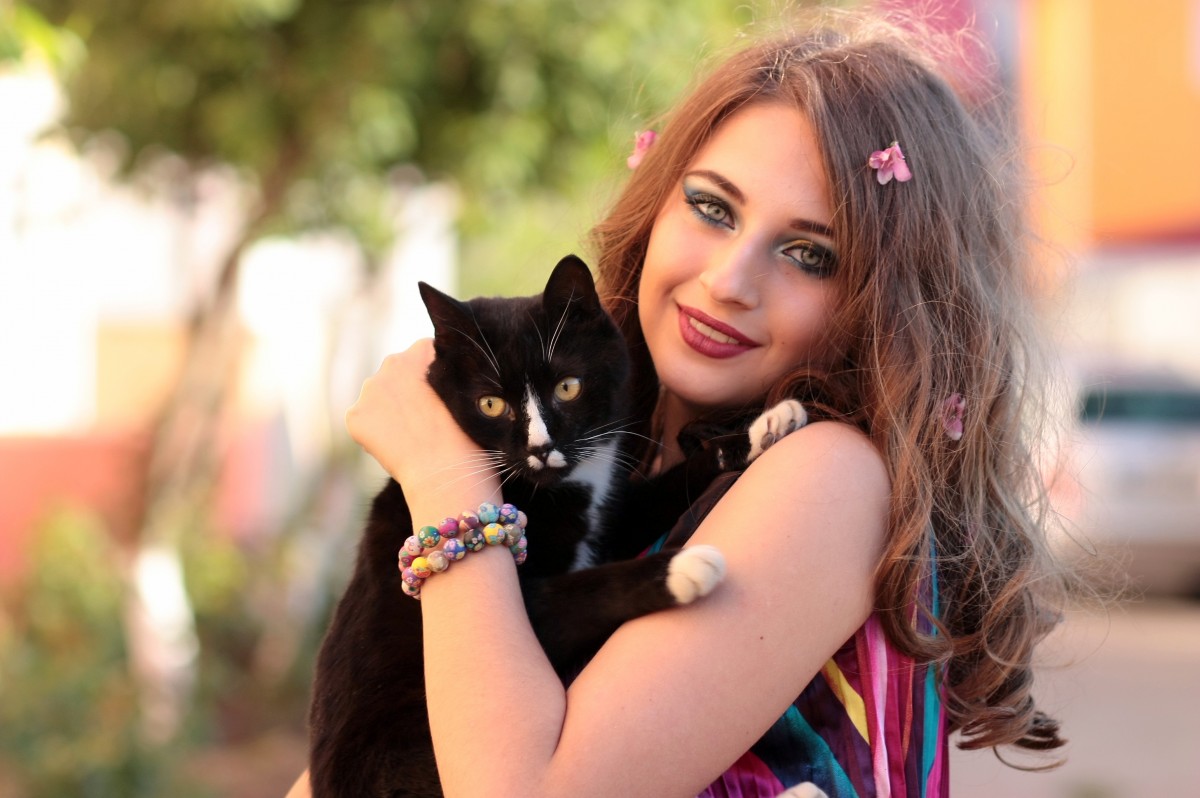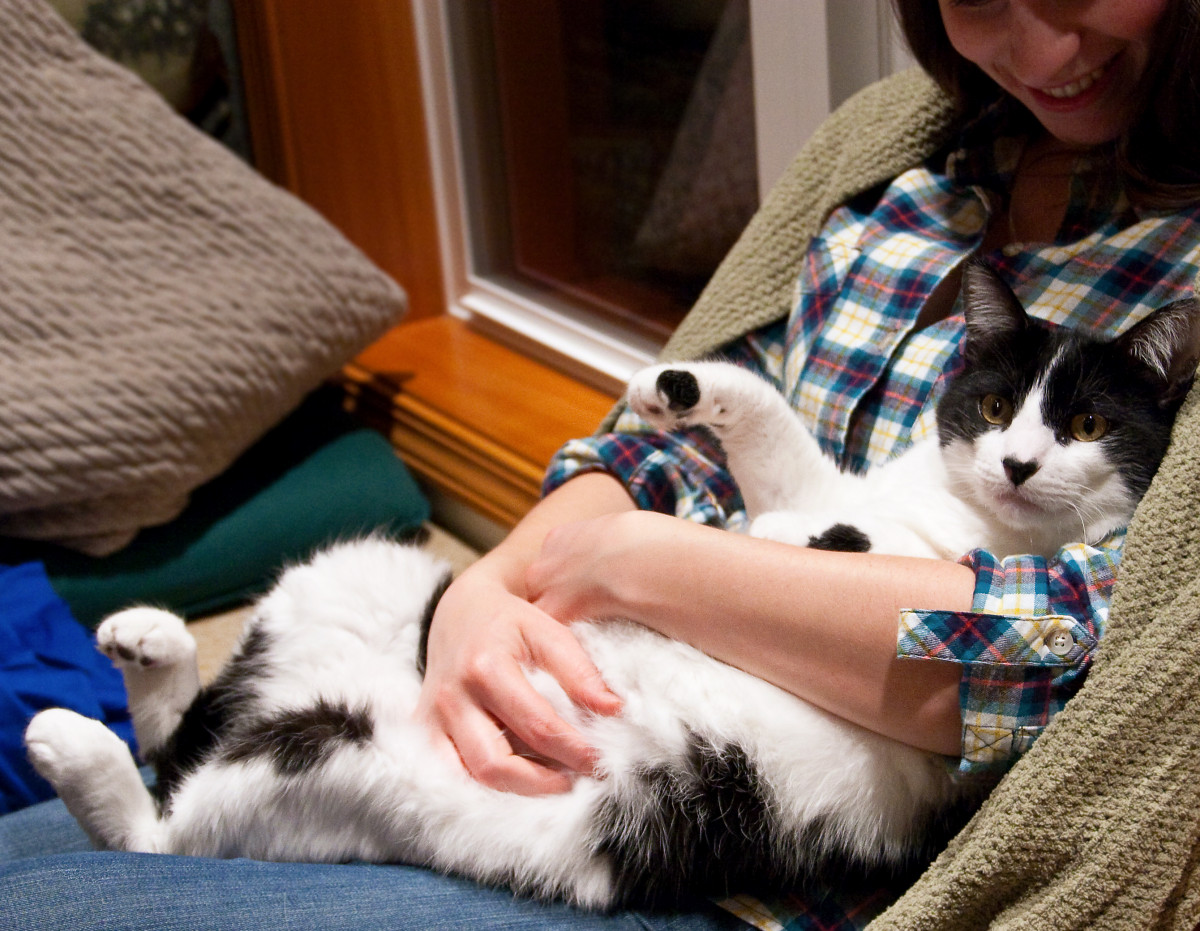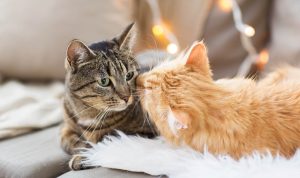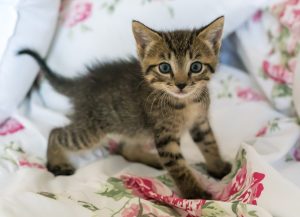
What to Do with a Clingy Cat?
Although cats are known for their independence, many cat owners will tell you that their pets can also be very affectionate, even clingy! Why do some cats become clingy? How should you behave around them? The answers to your questions are in our article.
The behavior of clingy cats
There is a difference between an affectionate cat that enjoys petting and often communicates with humans and a clingy cat with constant and excessive demands for attention and care. For example:
- It demands food all day long and even in the middle of the night.
- It has a strong need for physical contact, to the point of getting in your way and causing you to stumble.
- It joins you as soon as you sit on the couch or in front of the computer and even follows you into the bathroom.
- It licks itself excessively to reassure itself, to the point of causing bald spots.
These behaviors are signs of an anxious and stressed cat that needs a lot of reassurance from its owner. These cats are usually completely lost in the absence of their owner.
Causes of clingy cats
Several factors can explain a clingy cat’s behavior.
Background
Kittens separated too early from their mother or hand-raised before 8 weeks have a high risk of exhibiting these behavioral problems. They do not go through the period of maternal rejection, which triggers the young cat’s independence. Humans become substitute mothers, and the cat remains immature and demands attention.
Good to know: Cats that have been abandoned and those who spend their lives in shelters also have a great chance of being clingy and will be very attached to the person who adopted them.
Triggering factors
A female cat can change her behavior during her lifetime and become very clingy with her owners. For example, during heat periods and sometimes also during gestation. The balance can be restored once these special periods have passed.
Good to know: A major trauma such as a house fire or the disappearance of its owner can also trigger emotional problems in adult cats.
Owner’s health
Some women report a significant change in their cat’s behavior when pregnant. There are even cases of cats that had detected their owners’ pregnancies before they did! The cat spends much time sniffing them, coming close to them, lying on their stomach, and meowing more than usual.
Good to know: If the cat senses its owner is sick, it can also be more clingy than usual.
Breeds of clingy cats

There are breeds of cats with particularly affectionate personalities. Here is a non-exhaustive list of the best-known ones: Turkish Angora, Birman, Chartreux, Devon Rex, Exotic, Maine Coon, Persian, Ragdoll, Siamese, and Sphynx.
Good to know: In all cases, the breed alone is not everything; the kitten’s socialization plays a vital role in the behavior of the adult cat.
What to do with a clingy cat?
While it is pleasant to live with an affectionate and cuddly cat, it can quickly become difficult if the cat is clingy and has excessive behavior all day long. Here are some tips to remedy the situation:
- You can avoid bottle-feeding for too long for a kitten by quickly introducing solid food.
- Then you should help the cat gain independence from you by not treating it like a kitten.
- It will help if you reassure it without nurturing its emotional dependence.
There are gentle treatments that can regulate your cat’s anxiety, and you can discuss this with your veterinarian, who can provide advice.
Good to know: The autonomy issues found in these cats are called “hyperattachment disorders.”
By understanding the behavior of clingy cats and addressing their needs, you can create a harmonious and balanced relationship with your feline companion. Remember to provide them love, attention, and appropriate care while promoting their independence and well-being.





